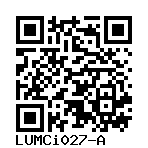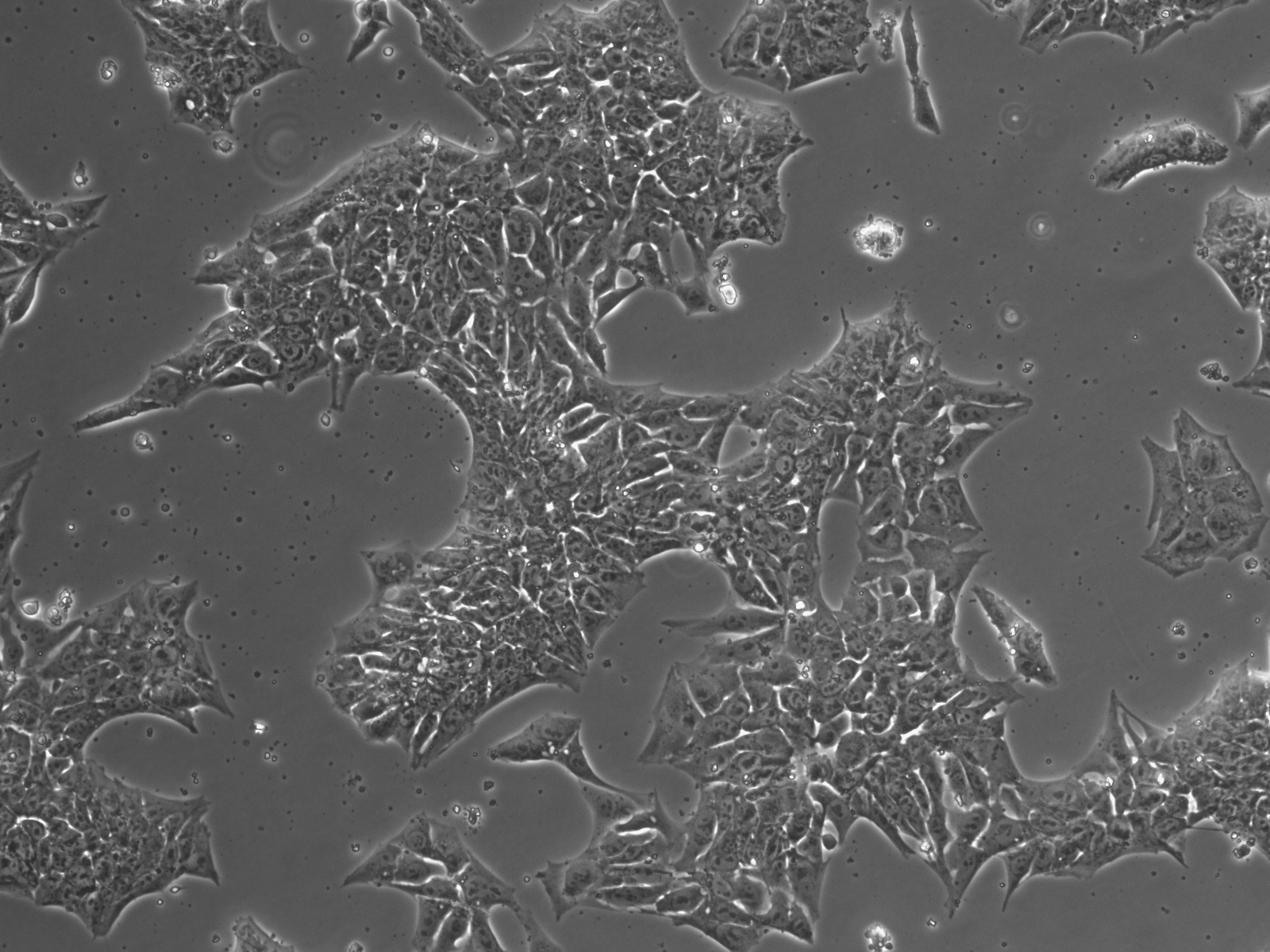LUMC0153iPKP03
LUMCi027-A
General
Donor Information
General Donor Information |
|
| Sex | female |
| Ethnicity | Caucasian |
Phenotype and Disease related information (Donor) |
|
| Diseases | A disease was diagnosed.
|
Karyotyping (Donor) |
|
| Has the donor karyotype been analysed? |
No
|
Other Genotyping (Donor) |
|
| Is there genome-wide genotyping or functional data available? |
No
|
External Databases (Donor) |
|
| BioSamples | SAMEA6724120 |
Ethics
| Has informed consent been obtained from the donor of the embryo/tissue from which the pluripotent stem cells have been derived? | Yes |
| Was the consent voluntarily given? | Yes |
| Has the donor been informed that participation will not directly influence their personal treatment? | Yes |
| Can you provide us with a copy of the Donor Information Sheet provided to the donor? | Yes |
| Do you (Depositor/Provider) hold the original Donor Consent Form? | Yes |
| Alternatives to consent are available? | No |
| Is there other documentation provided to the donor for consenting purposes? | No |
| Confirm that consent was obtained by a qualified professional | Yes |
| Has the donor agreed to be re-contacted? | Yes |
| Has the donor been informed about how her/his data will be protected? | Yes |
| Please indicate whether the data associated with the donated material has been pseudonymised or anonymised. | pseudonymised |
| Does consent explicitly allow the derivation of pluripotent stem cells? | Yes |
| Does the consent permit uses of donated embryo/tissue or derived cell line intended for clinical treatment or human applications? | No |
| Does consent expressly prevent development of commercial products? | Yes |
| Does consent expressly prevent financial gain from any use of the donated embryo/tissue, including any product made from it? | Yes |
| Does consent expressly permit storage of donated embryo/tissue for an unlimited time? | Yes |
| Does consent expressly permit storage of cells derived from the donated embryo/tissue for an unlimited time? | Yes |
| Does consent prevent the DONATED BIOSAMPLE from being made available to researchers anywhere in the world? | No |
| Does consent prevent CELLS DERIVED FROM THE DONATED BIOSAMPLE from being made available to researchers anywhere in the world? | No |
Does consent permit research by | |
| an academic institution? | Yes |
| Does consent expressly permit collection of genetic information? | Yes |
| Does consent expressly permit storage of genetic information? | Yes |
| Does consent prevent dissemination of genetic information? | No |
| Has the donor been informed that their donated biosample or derived cells may be tested for the presence of microbiological agents / pathogens? | No |
| Has the donor consented to receive information discovered during use of donated embryo/tissue that has significant health implications for the donor? | Yes |
| How may genetic information associated with the cell line be accessed? | No information |
| Will the donor expect to receive financial benefit, beyond reasonable expenses, in return for donating the biosample? | No |
| Does the consent anticipate that the donor will be notified of results or outcomes of any research involving the donated samples or derived cells? | No |
| Does the consent permit the donor, upon withdrawal of consent, to stop the use of the derived cell line(s) that have already been created from donated samples? | Yes |
| Does the consent permit the donor, upon withdrawal of consent, to stop delivery or use of information and data about the donor? | Yes |
| Does consent permit access to medical records of the donor? | No |
| Does consent permit access to any other source of information about the clinical treatment or health of the donor? | No |
| Has a favourable opinion been obtained from a research ethics committee, or other ethics review panel, in relation to the Research Protocol including the consent provisions? | Yes |
| Name of accrediting authority involved? | LUMC Medical Ethics Committee and Centro Cardiologico Monzino – IRCCS Ethical Committee |
| Approval number | Paraplu Protocol P13.080 (LUMC) and 12/06/2012 (Centro Cardiologico Monzino) |
| Has a favourable opinion been obtained from a research ethics committee, or other ethics review panel, in relation to the PROPOSED PROJECT, involving use of donated embryo/tissue or derived cells? | Yes |
| Name of accrediting authority involved? | LUMC Medical Ethics Committee and Centro Cardiologico Monzino – IRCCS Ethical Committee |
| Approval number | Paraplu Protocol P13.080 (LUMC) and 12/06/2012 (Centro Cardiologico Monzino) |
| Do you have obligations to third parties in regard to the use of the cell line? | Yes |
| Please describe: | No commercial use allowed by SeV provider |
| Are you aware of any further constraints on the use of the donated embryo/tissue or derived cells? | Yes |
| Further constraints on use | No commercial use allowed by SeV provider |
| For generation of the cell line, who was the supplier of any recombined DNA vectors or commercial kits used? | Mahito Nakanishi, PhD, Research Center for Stem Cell Engineering National Institute of Advanced Industrial Science and Technology (AIST) |
| Are you aware of any constraints on the use or distribution of the cell line from the owner or any parties identified in the query above? | No |
hIPSC Derivation
General |
|
| Source cell type | |
| Passage number reprogrammed | p3 |
Reprogramming method |
|
| Vector type | Non-integrating |
| Vector | Sendai virus |
| Genes | |
| Is reprogramming vector detectable? |
No |
| Methods used |
RT-PCR
|
| Notes on reprogramming vector detection | Primer sequences used for detection: GCAGCTCTAACGTTGTCAAA/CCTGGAGCAAATTCACCATGA |
| Files and images showing reprogramming vector expressed or silenced | |
| Vector map | |
Vector free reprogramming |
|
Other |
|
| Selection criteria for clones | Selection based on typical embryonic stem cell-like morphology |
| Derived under xeno-free conditions |
No |
| Derived under GMP? |
No |
| Available as clinical grade? |
No |
Culture Conditions
| Surface coating | Vitronectin |
| Feeder cells |
No |
| Passage method |
Enzyme-free cell dissociation
EDTA
|
| O2 Concentration | 20 % |
| CO2 Concentration | 5 % |
| Medium | Essential 8™ |
| Has Rock inhibitor (Y27632) been used at passage previously with this cell line? | Yes |
| Has Rock inhibitor (Y27632) been used at cryo previously with this cell line? | Yes |
| Has Rock inhibitor (Y27632) been used at thaw previously with this cell line? | Yes |
Characterisation
Analysis of Undifferentiated Cells
| Marker | Expressed | Immunostaining | RT-PCR | Flow Cytometry | Enzymatic Assay | Expression Profiles |
| NANOG |
Yes |
|||||
| SSEA-4 |
Yes |
|||||
| POU5F1 (OCT-4) |
Yes |
|||||
| SOX2 |
Yes |
Differentiation Potency
In vitro directed differentiation
Morphology
Endodermal marker FOXA2_IF.pdf
Immunostaining for endodermal marker FOXA2
Endodermal marker SOX17_IF.pdf
Immunostaining for endodermal marker SOX17
In vitro directed differentiation
Morphology
Mesodermal marker SMA_IF.pdf
Immunostaining for mesodermal marker SMA (alpha-smooth muscle actin)
Mesodermal marker VIM_IF.pdf
Immunostaining for mesodermal marker VIM (Vimentin)
In vitro directed differentiation
| Marker | Expressed |
| TUBB3 |
Yes |
| PAX6 |
Yes |
Morphology
Ectodermal marker PAX6_IF.pdf
Immunostaining for ectodermal marker PAX6
Ectodermal marker TUBB3_IF.pdf
Immunostaining for ectodermal marker TUBB3
Microbiology / Virus Screening |
|
| Mycoplasma | Negative |
Genotyping
Karyotyping (Cell Line) |
|
| Has the cell line karyotype been analysed? |
Yes
|
Other Genotyping (Cell Line) |
|



Login to share your feedback, experiences or results with the research community.